Courses & Standards
National Course Standards
LAPSEN is the preeminent national organization working in Law and Public Safety (LPS) education. An important element in our service to our states and educators is maintaining national course standards for courses offered by LPS programs. Our courses are guides for local states and systems to use as one source of direction as they create their local course standards. We have the advantage of national partnerships with education and industry groups to tap into as we create these courses. We also have a large body of expert teachers, often with extensive industry experience, to help us craft courses that are timely and reflect current trends. LAPSEN stands to support our states and local systems in all they do. Course development is one of these services.
Course Process:
- Our Board indicates which course(s) will be created or revised
- We solicit participation in the Course Development Committee which will create the course
- Once the course is initially completed, we solicit participation in the Course Review Committee which will exhaustively review the new course
- Finally, the course is submitted to the whole Board and advisors for review and final approval.
Are you an expert? Would you like to serve on a course committee? Email us at info@lapsen.org to learn more.
Introductory Courses
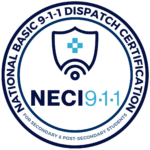
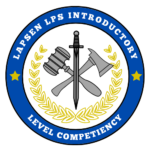 Introduction to Law & Public Safety (ILPS)
Introduction to Law & Public Safety (ILPS)
This is the most common first year class. This course allows states to construct their own concept of the introduction course. Like a buffet, states can choose which parts they would like to adopt, but are not required to use any standards in any particular order.
- ILPS content and standards – Click Here
- ILPS Instructor Resources & Lesson Plans (members only) – Click Here
- ILPS Industry Recognized Credentials
- Prerequisites – none
Pathways:

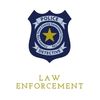
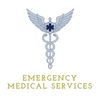
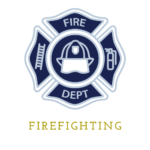
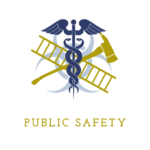



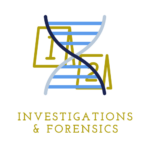
Introduction to Legal Services (ILS)
The Legal Services Pathway should have a separate introduction course. The legal services pathway is more unique in content. There is little cross over between this pathway and the others. When possible, the legal services pathway should start with a pathway specific orienation course.
- ILS content and standards – Click Here
- ILS Instructor Resources & Lesson Plans – Click Here
- Prerequisites – none
Pathway:


 Introduction to Public Safety Service (IPSS)
Introduction to Public Safety Service (IPSS)
Under Development
The course is for a public safety pathways that emphasizes fire, emergency communications, and/or emergency medical response. This is particularly useful in pathways that are preparing students to test for Fire 1 or EMT as it allows hours of preparation in the first year for required training. The course is also a good orientation for a broader public safety pathway.
- IPSS content and standards – In Development
- IPSS Instructor Resources & Lesson Plans (members only) – In Development
- IPSS Industry Recognized Credentials
- Prerequisites – none
Pathways:





Core Courses
Criminal & Constitutional Law (CCL)
This course provides an overview of constitutional and criminal law. Students will learn fundamental concepts and skills relevant to understanding the interaction between constitutional and criminal law, as well important concepts in our criminal justice system. Topics include the bill of rights, sources of law, legal research and writing, substantive criminal law, the US court system, mock trials, and more.
- CCL content and standards – Click Here
- CCL Instructor Resources & Lesson Plans – Click Here
- Prerequisites – Introduction to Legal Services or Introduction to Law and Public Safety
Pathways:


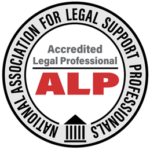 Civil Law (CvL)
Civil Law (CvL)
The third course in the Legal Services (LS) Pathway, this course provides an overview of the civil law field. Students will learn fundamental concepts and skills relevant to understanding civil law and the legal system. Topics include legal careers, research and writing in the civil field, substantive civil law, mock trials, and more.This also prepares students for the ALP that is taken at the end of this course.
- CvL content and standards – Click Here
- CvL Instructor Resources & Lesson Plans – Click Here
- CvL Certification – Accredited Legal Professional (taken at the end of this course)
- Prerequisites – Introduction to Legal Services, Criminal Law
Pathway:

Criminal and Constitutional Law (CCL)
This optional advanced course in the Legal Services (LS) Pathway provides an overview of constitutional and criminal law. Students will learn fundamental concepts and skills relevant to understanding the interaction between constitutional and criminal law, as well important concepts in our criminal justice system. Topics include the bill of rights, sources of law, legal research and writing, substantive criminal law, the US court system, mock trials, and more.
- CCL content and standards – Click Here
- CCL Instructor Resources & Lesson Plans – Click Here
- CCL Certification – Accredited Legal Professional (taken in the third year course – Civil Law)
- Prerequisites – Introduction to Legal Services
Pathways:





Criminal Investigations & Forensics (CIF)
CIF is a highly marketable and engaging overview of working crime scenes and conducting investigations. Students will learn about processing crime scenes, collecting evidence, and interpreting the results. They will also learn the legal applications of laws and the Constitution that serve as guardrails to the investigative process. Investigative skills such as interviews, interrogations, crime scene reconstruction and criminal profiling are also covered.
- CIF course and standards – Click Here
- CIF Instructor Resources & Lesson Plans (members only) – Click Here
- CIF Certification – Basic Crime Scene Investigator
- Prerequisites – Introduction to Law and Public Safety
Pathways:





Criminal Law (CrL)
The second course in the Legal Services (LS) Pathway focuses on criminal trial and legal procedure. This course also prepares students for the ALP that is taken in the third course – Civil Law. This course provides an overview of the criminal law field. Students will learn fundamental concepts and skills relevant to understanding criminal law. Topics include search and seizure, criminal laws, analyzing statutes, legal research and writing, mock trials, and more.
- CrL content and standards – Click Here
- CrL Instructor Resources & Lesson Plans – Click Here
- CrL Certification – Accredited Legal Professional (taken at the end of the third year course – Civil Law)
- Prerequisites – Introduction to Legal Services
Pathway:

Detention and Corrections (DC)
Under Development
Detention and Corrections (DC) prepares students to work in the fastest-growing career field in LPS. Once students complete this course they will be fully prepared for entry-level work in the field. This course provides an in-depth exploration of the criminal justice system, focusing on the role and responsibilities of detention officers and correctional professionals. Students will gain a comprehensive understanding of the various components involved in the correctional field, including the purpose of detention facilities, rehabilitation strategies, and the ethical considerations associated with working in corrections. Skills learned in DC will also prepare students interested in careers in law enforcement and other LPS careers to build experience prior to their 21st birthday.
- CCL content and standards – Under Development
- CCL Instructor Resources & Lesson Plans – Click Here
- CCL Certification – Basic Detention Officer – Under Development
- Prerequisites – Introduction to Law & Public Safety
Pathways:



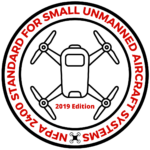
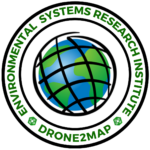 Drones for Law & Public Safety (DLPS)
Drones for Law & Public Safety (DLPS)
This course prepares students for certifications to operate drones in the law and public safety environment. First students will complete the necessary training to be prepared to pass the FAA 107 Pilot test. Students will then train in remote sensing and photogrammetry. Students will learn how to prepare and plan for law and public safety operations. A significant portion of the course time will be dedicated to developing flight skills and performing maneuvers necessary for such operations. Using the National Institute of Standards and Technology national standard performance test for unmanned aerial vehicles, students will train for real world applications.
- DLPS course and standards – Click Here
- DLPS Instructor Resources & Lesson Plans (members only) – Click Here
- DLPS Certification – FFA 107, NFPA 2400, & ESRI Drone2Map
- Prerequisites – None
Pathways:









Forensic Science (FS)
FS is a science based approach to teaching investigations. The course can be a science course, a LPS CTE course, or both! In some states this course counts for science and CTE credit. The course does more of a deep dive into the applications of science to criminal investigation. It does address investigative techniques as well.
- FS course and standards – Click Here (under development)
- FS Instructor Resources & Lesson Plans (members only) – Click Here (under development)
- FS Certification – Basic Crime Scene Investigator
- Prerequisites – As a part of a CTE LPS pathway, it is recommended students have completed Introduction to Law and Public Safety. It is preferred that they have completed Law Enforcement as well. As an elective in a science department, it is recommended students have completed Physical Science and Biology.
Pathways:





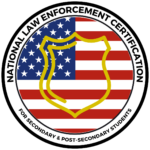 Law Enforcement (LE)
Law Enforcement (LE)
Law Enforcement prepares individuals to perform the duties of police and public security officers, including patrol and investigative activities, traffic control, crowd control, public relations, witness interviewing, evidence collection and management, court procedures and the law in general. Basic crime prevention methods, weapon and equipment operation, equipment maintenance, and other routine law enforcement responsibilities are also included.
- LE content and standards – Click Here
- LE Instructor Resources & Lesson Plans (members only) – Click Here
- LE Certification – National Law Enforcement Certification
- Prerequisites – Introduction to Law & Public Safety
Pathways:






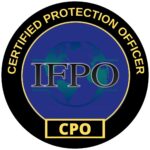 Security & Protective Services (SPS)
Security & Protective Services (SPS)
Security and Protective Services prepares students to work in the fastest-growing career field in LPS. Once students complete this course they will be fully prepared for entry-level work in the field. Students will be able to take the Certified Protection Officer (CPO) certification exam. The CPO is recognized by thousands of employers worldwide. Students will be able to be employed immediately in a field with excellent compensation and opportunities. Skills learned in SPS will also prepare students interested in careers in law enforcement and other LPS careers to build experience prior to their 21st birthday.
- SPS content and standards – Click Here
- SPS Instructor Resources & Lesson Plans (members only) – Click Here
- SPS Certification – Certified Protection Officer (CPO)
- Prerequisites – Introduction to Law & Public Safety
Pathways:





